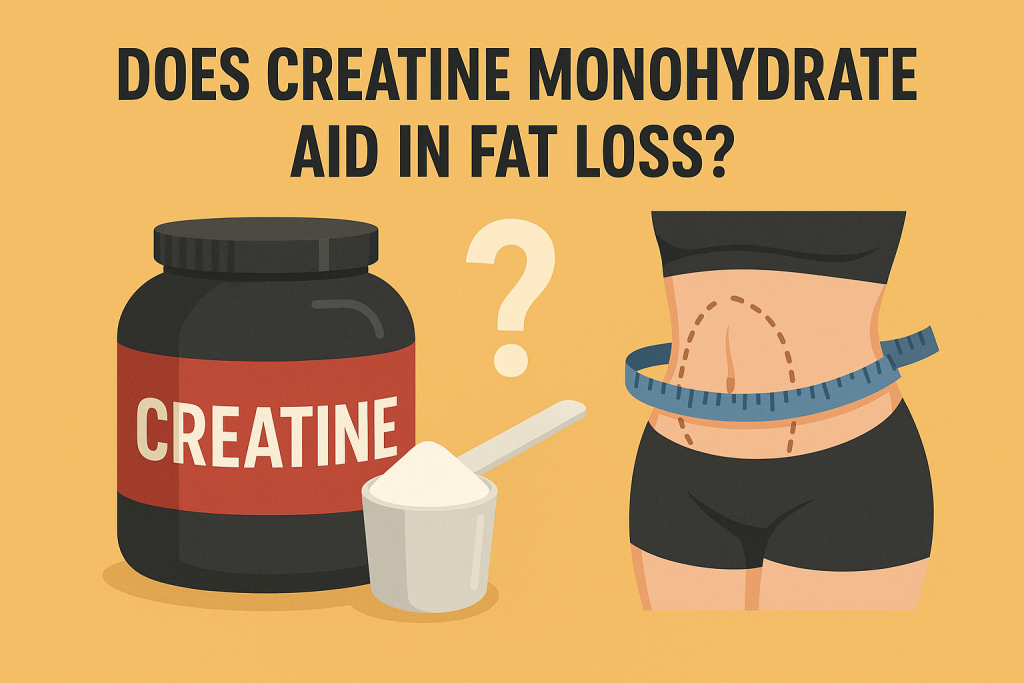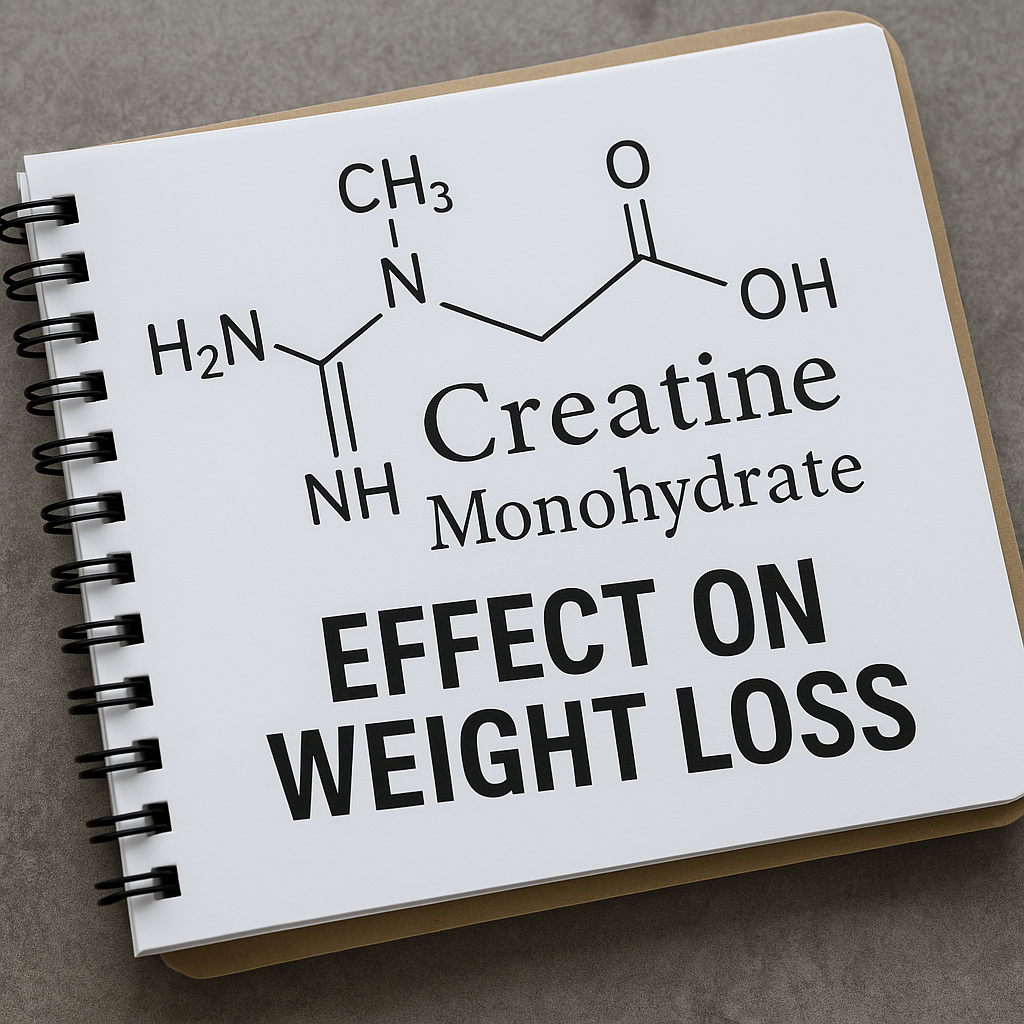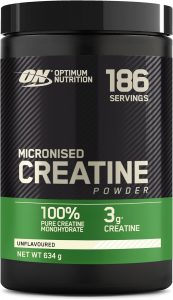Creatine monohydrate is renowned for its role in enhancing muscle strength and performance, but its effects on fat loss are less understood. This article explores how creatine monohydrate can assist in fat loss, examining scientific research that highlights its potential benefits. By improving exercise performance, supporting muscle retention, and increasing metabolic rate, creatine may offer unique advantages for those looking to lose weight effectively. This analysis focuses on human studies, providing insight into how incorporating creatine into a fitness regimen could be beneficial for fat loss.

Does Creatine Monohydrate Aid in Fat Loss?
Creatine monohydrate is a widely used supplement among athletes and bodybuilders, primarily known for its ability to enhance muscle strength and performance. However, an intriguing question arises: does creatine monohydrate aid in fat loss? In this article, we will explore the relationship between creatine supplementation and fat loss, focusing on scientific research and practical implications for individuals looking to achieve their fitness goals.
!
Understanding Creatine Monohydrate
Creatine monohydrate is a naturally occurring compound found in muscle cells, where it plays a crucial role in the production of adenosine triphosphate (ATP), the energy currency of the body. When engaging in high-intensity exercise, ATP levels quickly deplete, and creatine helps replenish these stores, allowing for sustained performance. This ability to enhance exercise capacity is one of the reasons creatine has gained popularity among athletes.

How Can Creatine Monohydrate Assist in Fat Loss?
While creatine is not a fat burner per se, several mechanisms suggest it can indirectly support fat loss efforts:
- Improved Exercise Performance
- Enhanced exercise performance is a significant factor in achieving fat loss. Studies indicate that creatine supplementation leads to increased strength, power, and endurance. This means individuals can train harder and longer, leading to greater calorie expenditure during workouts. A study published in the Journal of Strength and Conditioning Research found that athletes who were supplemented with creatine could perform more repetitions at a higher intensity than those who did not, ultimately burning more calories during their workouts.
- Muscle Retention During Weight Loss
- One common challenge during weight loss is the risk of losing muscle mass along with fat. Maintaining muscle mass is crucial because muscle tissue is metabolically active, meaning it burns more calories at rest. Creatine has been shown to help preserve lean body mass during caloric restriction. A study in Obesity demonstrated that participants who supplemented with creatine while following a caloric deficit retained more muscle mass compared to those who did not.
- Increased Resting Metabolic Rate
- Creatine may also contribute to an increased resting metabolic rate (RMR). When muscle mass increases, RMR typically rises, resulting in more calories burned at rest. Research published in the American Journal of Clinical Nutrition highlighted that individuals with higher muscle mass had a significantly higher RMR, emphasizing the importance of muscle preservation and growth in fat loss efforts.
- Enhanced Recovery
- Recovery is essential for maintaining a consistent workout routine. Creatine has been shown to aid in recovery by reducing muscle soreness and inflammation. A study published in the European Journal of Applied Physiology indicated that creatine supplementation reduced markers of muscle damage after intense exercise. By facilitating quicker recovery, individuals can return to training sooner, further contributing to their calorie expenditure and fat loss.

Scientific Research on Creatine and Fat Loss
Numerous studies have investigated the effects of creatine on body composition and fat loss. Here are some key findings:
- A study published in the Journal of the International Society of Sports Nutrition analyzed the effects of creatine on body composition and performance in resistance-trained individuals. The results showed significant improvements in muscle mass and strength, along with a positive trend toward fat loss over 12 weeks of supplementation.
- A research study published in Nutrition & Metabolism examined the impact of creatine on body composition in overweight individuals participating in a weight loss program. Participants who were supplemented with creatine experienced greater muscle retention and a more favorable body composition compared to those who received a placebo.
- A systematic review in the Journal of Strength and Conditioning Research concluded that creatine supplementation, when combined with resistance training, may lead to greater fat loss and improvements in body composition compared to resistance training alone.
Practical Applications for Fat Loss
If you’re considering using creatine monohydrate as part of your fat-loss strategy, here are some practical tips to maximize its benefits:
- Incorporate into Your Routine
- For best results, incorporate creatine into your daily supplement routine. A common recommendation is to take 3-5 grams of creatine monohydrate daily. This dosage is effective for enhancing performance without the need for a loading phase.
- Combine with Resistance Training
- To harness the full potential of creatine, pair it with a structured resistance training program. The combination of increased strength and calorie expenditure from weightlifting can significantly enhance fat-loss efforts.
- Focus on Overall Nutrition
- While creatine can aid in performance and muscle retention, it’s essential to maintain a balanced diet. Ensure you’re consuming sufficient protein, healthy fats, and carbohydrates to support your training and recovery.
- Stay Hydrated
- Creatine can draw water into muscle cells, so it’s crucial to stay adequately hydrated. Aim to drink plenty of water throughout the day, especially during workouts.
- Monitor Your Progress
- Keep track of your body composition and performance metrics. This will help you assess the effectiveness of creatine supplementation and adjust your strategy as needed.
Conclusion In summary, while creatine monohydrate may not be a direct fat burner, its ability to enhance exercise performance, support muscle retention, and improve recovery can significantly contribute to fat loss efforts. Backed by scientific research and practical applications, creatine

Good Blog